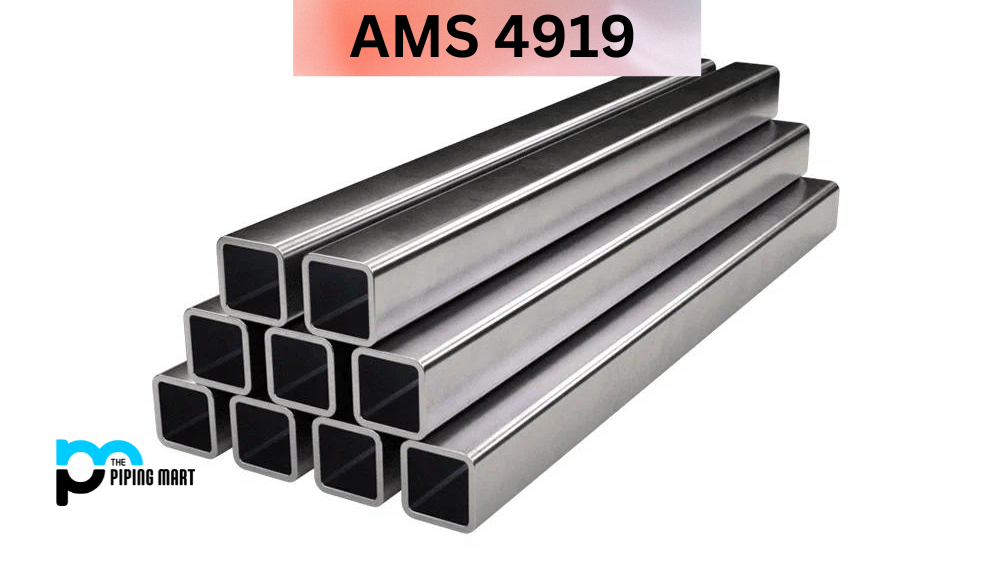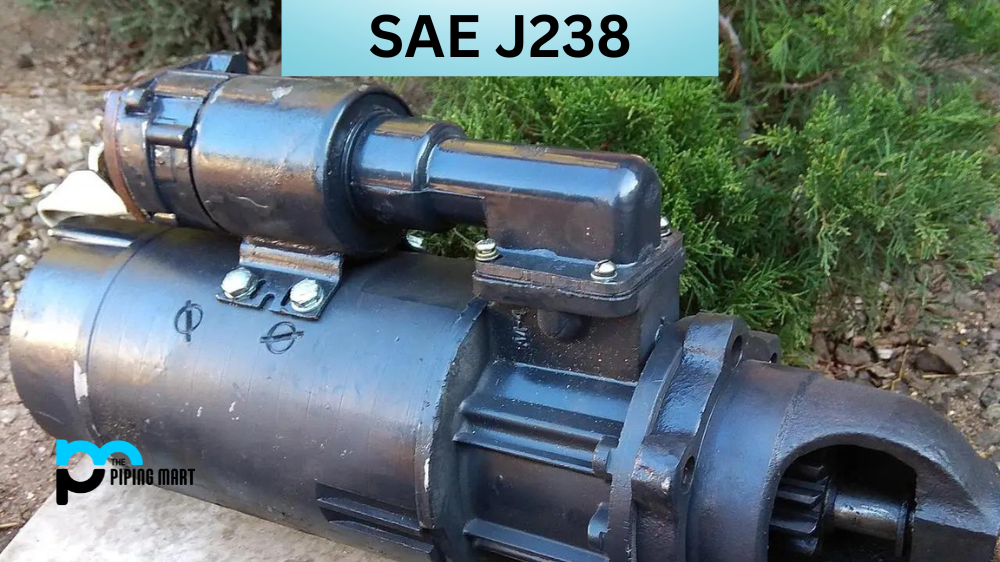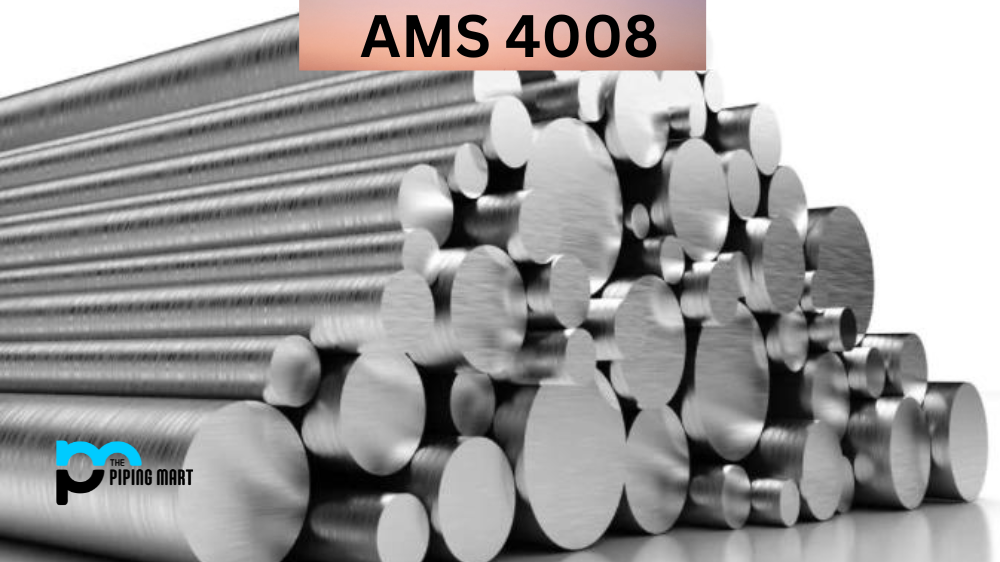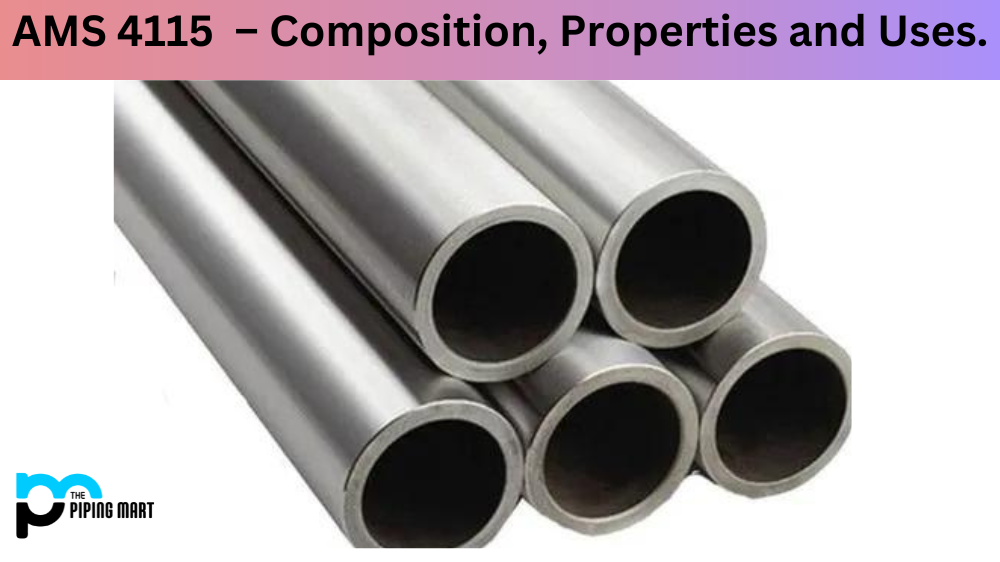AMS 4919 is a commonly used titanium alloy grade in the aerospace industry. It is a high-strength material with excellent corrosion resistance and thermal stability, making it an ideal choice for various aircraft and spacecraft components. This blog post will discuss the composition, physical and mechanical properties, uses, hardness, and heat treatment of AMS 4919.
What is AMS 4919?
AMS 4919 is a specification developed by the Aerospace Materials Division of SAE International, often called the aerospace material standard. It outlines requirements for manufacturing and testing titanium alloy products within aerospace applications, including components such as flight control systems or engine components. This specification ensures parts meet exacting criteria for performance and reliability.
AMS 4919 Composition
AMS 4919 is a titanium alloy comprising 6% aluminium, 4% vanadium, and 6% chromium. The alloy is strengthened by ageing at 900°F for 2 to 8 hours, which generates an alpha plus beta structure. The alloy is also heat-treatable, which can be modified and adjusted to fit the project’s specific needs.
AMS 4919 Physical Properties
AMS 4919 has a density of 4.5 grams per cubic centimetre, which makes it relatively lightweight compared to other metals. The alloy can withstand temperatures up to 900°F and has a melting point of 1640°C. Moreover, AMS4919 exhibits excellent thermal and electrical conductivity, making it ideal for heat exchangers and electrical components.
AMS 4919 Mechanical Properties
AMS 4919 has excellent fatigue and fracture resistance, making it a popular choice in various aerospace applications. It has a specific strength of 140 kN-m/kg and a tensile strength of 950 MPa. The alloy also exhibits a low modulus of elasticity (116 GPa) and high flexibility, making it easily formable and machinable.
AMS 4919 Uses
Due to its superior properties, AMS 4919 is widely used for various aerospace, marine, and chemical applications. Typically, it is used in structural components, including engine components, landing gear, airframes, and ducts. Additionally, AMS 4919 is an excellent choice for medical implants where biocompatibility, corrosion resistance, and bio inertness are needed.
AMS 4919 Hardness
AMS 4919 exhibits excellent hardness and strength. It has a Rockwell hardness of 34, which means it is relatively strong and durable. The hardness can be further enhanced by ageing the material. The harder AMS 4919 is, the less malleable it becomes. However, despite the hardness, AMS 4919 is still relatively easy to machine, making it suitable for high-performance components.
AMS 4919 Heat Treatment
Heat treatment is essential for AMS 4919, affecting the material’s strength, flexibility, and other properties. The alloy can be heat-treated at 800–1100°C, quenching and ageing. This increases the strength and hardness of the material while retaining its flexibility and fracture resistance.
Conclusion:
AMS 4919 is an essential titanium alloy for the aerospace industry, and its excellent properties make it ideal for a wide range of applications. The alloy’s composition, physical and mechanical properties, uses, hardness and heat treatment have been discussed in this blog post. Knowing these properties can help engineers and designers make informed decisions about material selection for their projects. With the growing demand for high-performance materials, there is no doubt that AMS 4919 plays a significant role in shaping the aerospace industry’s future.




